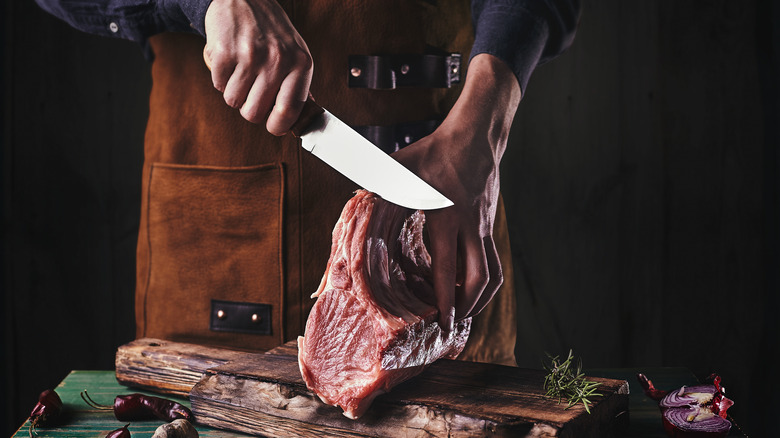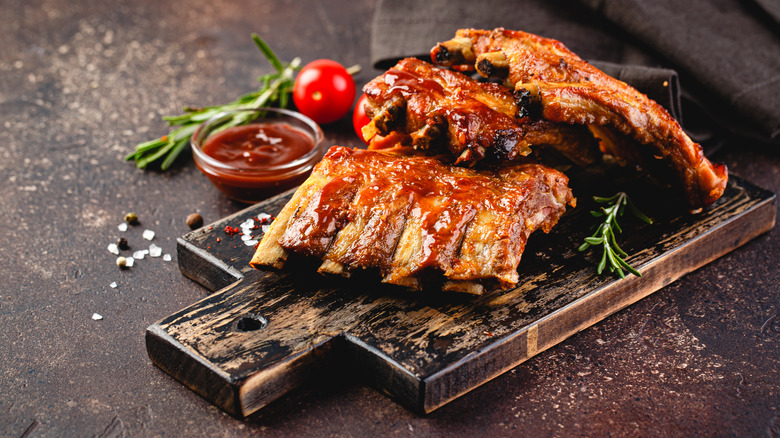Here's What 'High On The Hog' Really Means
Netflix plans to make history with its new show, "High on the Hog: How African American Cuisine Transformed America." This four-episode documentary, based on the 2011 book by Jessica B. Harris, takes a deep look into the Black culinary experience in North America while tracing food legacies across the Americas and Africa (via New York Times). The show guarantees to showcase the profound impact that the African culinary legacy has bestowed on the modern food landscape in the United States, while taking its name from an old colloquialism that denotes the best cuts of meat of pork and has now come to mean "wealthy."
According to The Phrase Finder, the phrase was used to describe the best cuts of meat from pigs, which usually came from the back and upper legs and were eaten by the wealthy. At the same time, pork belly and trotters, which cost less, became associated with those who had less money.
The phrase originated in the United States when the New York Times printed: "Southern laborers who are 'eating too high up on the hog' (pork chops and ham) and American housewives who 'eat too far back on the beef' (porterhouse and round steak) are to blame for the continued high cost of living," in 1920. The Phrase Finder says that the phrase reappeared and was cemented thanks to a May 1946 San Francisco news story that stated: "I have to do my shopping in the black market because we can't eat as high off the hog as Roosevelt and Ickes and Joe Davis and all those millionaire friends of the common man."
A phrase fraught with connotations
The phrase's socio-economic connotations play deeply into the themes found within the new Netflix series. In a press release, Netflix shared that the limited series will look into "America's deep-rooted history of slavery, and the impact on American food as we know it today." According to the New York Times, the show places the spotlight on how cooking with available ingredients led to some amazing developments in American food culture, while highlighting the struggles, nuance, joy, and fortitude that Black communities and chefs incorporated into their cooking that then shaped the world. "High on the Hog" celebrates all of the food that came about from the African diaspora and highlights the communities that continue to keep these culinary traditions alive.
For a deep dive into this oft-forgotten piece of culinary history and the real roots of American cooking, make sure to check out "High on the Hog" when the series begins streaming on May 26 on Netflix. Thanks to the insight that this show provides, many blindspots food historians have missed are given a closer examination.

